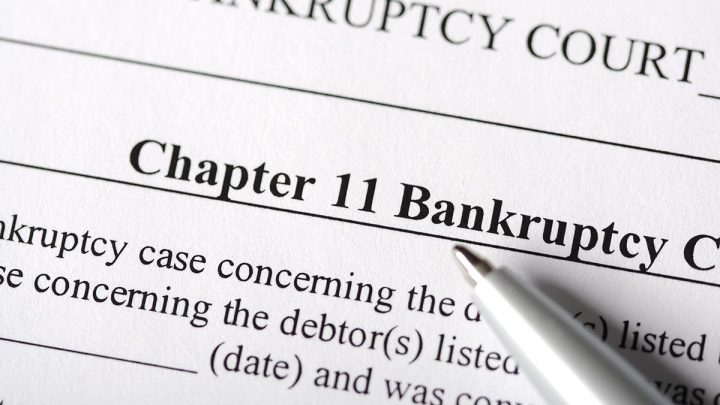
The case for reining in the perks of corporate bankruptcy

Bankruptcy is the busiest federal court in the U.S. Last year, more than 200 companies with at least $50 million in liabilities filed for bankruptcy, according to Bloomberg. That’s the second most since just after the Great Recession in 2009.
A new book argues that bankruptcy has become a “Swiss Army knife” or “escape hatch” for big companies to get out of all kinds of trouble — even those beyond financial distress.
Melissa Jacoby is the author of “Unjust Debts: How Our Bankruptcy System Makes America More Unequal.” Jacoby, a law professor at the University of North Carolina at Chapel Hill, discussed the divergence between corporate and individual bankruptcy with “Marketplace Morning Report” host Sabri Ben-Achour. The following is an edited transcript of their conversation.
Sabri Ben-Achour: The conclusion you draw in this book is that, for the typical person or family filing for bankruptcy, the system has become more difficult, more costly. But for institutions or large companies, it’s become more expansive, more beneficial. What does that look like, exactly?
Melissa Jacoby: Really it’s affecting issues that sound like they should have nothing to do with a highly specialized area of financial law. So we see bankruptcy affecting things like gun violence, employment discrimination — companies that want to sell themselves very quickly in bankruptcy. And they don’t want to follow the playbook that Congress wrote. Examples of that include the Weinstein Co., that filed for bankruptcy and sold itself quickly to a private equity firm. Remington, the maker of guns and ammunition, is another example of that kind of case.
Ben-Achour: And how is that different from the experience of, say, an individual who has to go file for bankruptcy?
Jacoby: Congress changed the law substantially in 2005, making it more complicated, more expensive and giving less relief. African American families are disproportionately steered toward a kind of bankruptcy that gives them less protection and costs more money. Big corporations get a more fresh start than families do.
Ben-Achour: I guess the, the justification for that is that, you know, if a company goes down, there are a whole bunch of jobs that go with it. Is that good enough reason for a system that favors companies?
Jacoby: Job saving was supposed to be a really critical function of Chapter 11 when Congress expanded business access to Chapter 11 back in 1978. Sometimes it’s used to ask for things without really delivering those benefits. But I think if we looked at individual bankruptcies and asked about the more instrumental effects — growing small businesses, for example — I think we’d see that the distinction breaks down.
There’s a lot happening in the world. Through it all, Marketplace is here for you.
You rely on Marketplace to break down the world’s events and tell you how it affects you in a fact-based, approachable way. We rely on your financial support to keep making that possible.
Your donation today powers the independent journalism that you rely on. For just $5/month, you can help sustain Marketplace so we can keep reporting on the things that matter to you.











